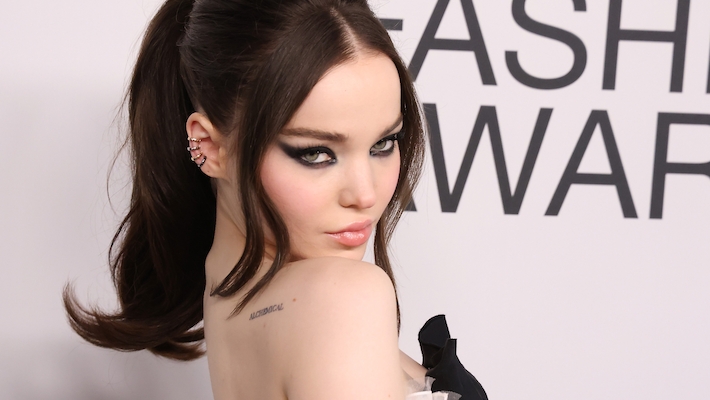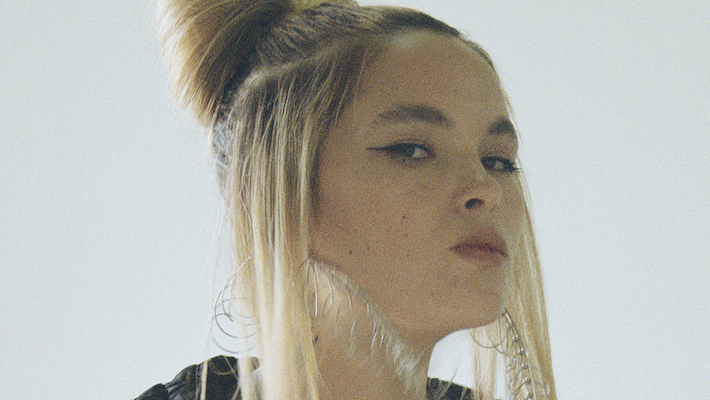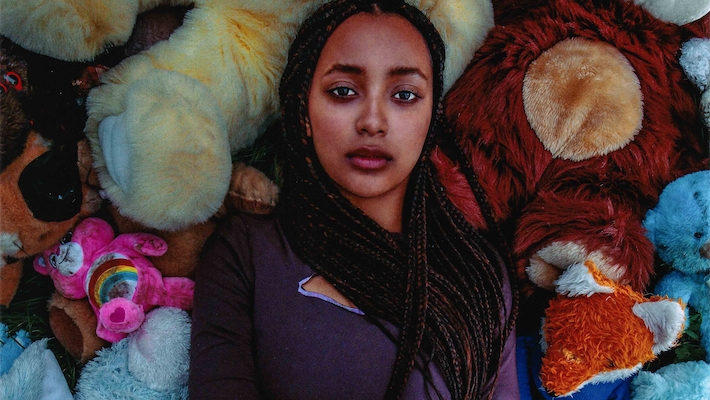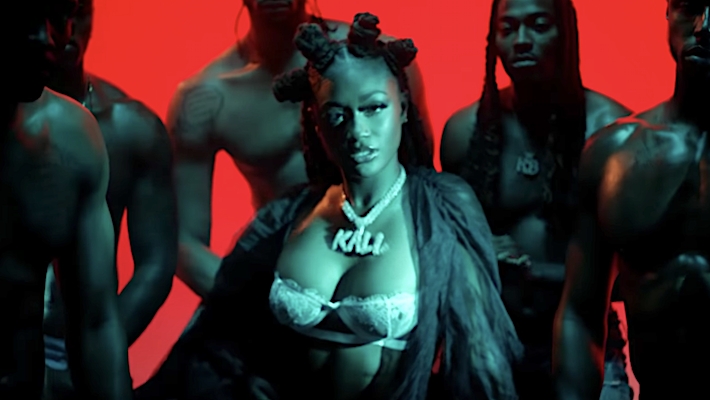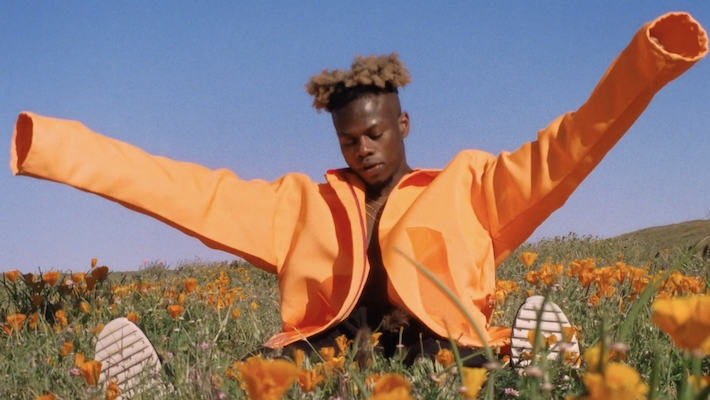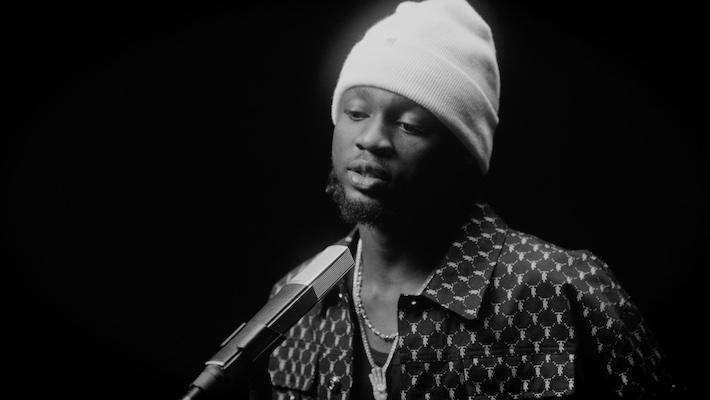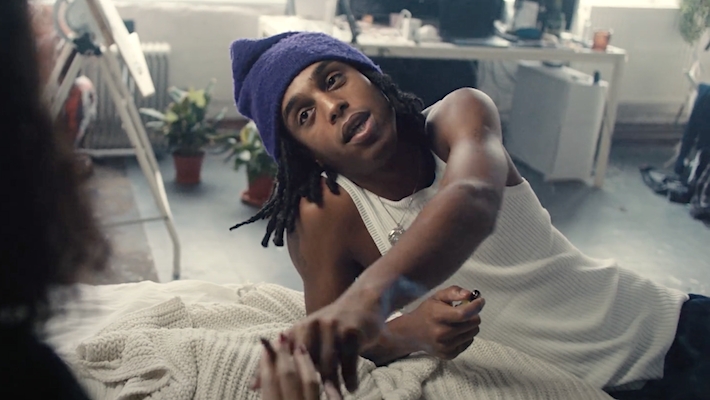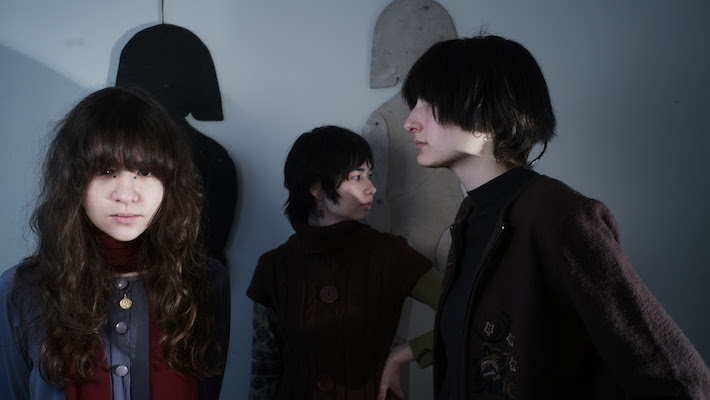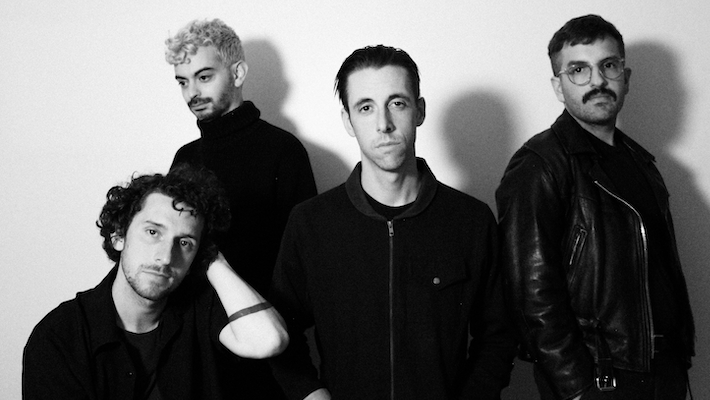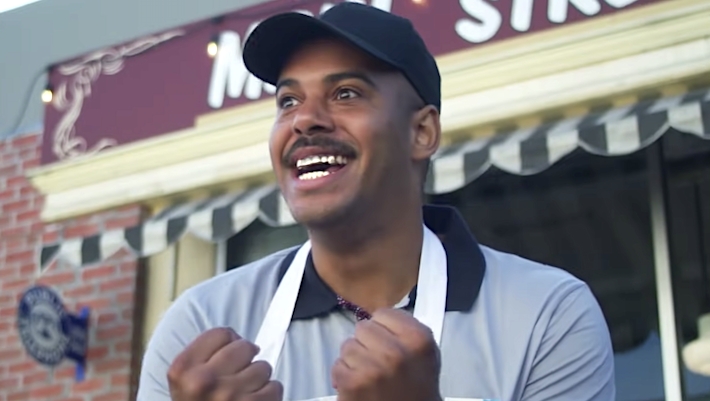
It’s hard to nail Bakar down — in terms of genre, style, and, in his early days, even by a name. With each of the London-bred singer’s songs, he wants the listener to cherish the moment in which they are hearing and feeling it. On Bakar’s debut album, February’s Nobody’s Home, each track unfolds like the pages of a book, detailing his most cherished moments, lining in Hampstead, Camden, and Chalk Hill.
We get a glimpse of Bakar’s day-to-day life in the video for “NW3,” the title of which refers to the postal code of London’s Hampstead district. Whether he’s alone on a rooftop, enjoying a meal with friends, or smoking in his flat, Bakar finds solace in each moment, often getting lost in time, dancing throughout.
But before Bakar, born Abubakar Baker Shariff-Farr, “found the answer” in “NW,” he released much of his music on Soundcloud beginning in 2015, anonymously. Oftentimes, he would upload vocal freestyles over samples of King Krule and Bombay Bicycle Club, many of his raw, unfiltered lyrics opening windows to his soul. One of these tracks is 2016’s “Sharing Is Caring,” on which, he reels over a love lost.
“Hope that you believe like how I believe / Gave you my love, you sold it back to me / Play with love too much, you might lose it / Smoked my last Camel but we can twos it,” Bakar sings, as adlibbed hums and coos give the song a forlorn and haunting element.
The influence of Kid Cudi and Dev Hynes is present in Bakar’s work, the latter of which Bakar has been a fan of since Hynes’ Lightspeed Champion days. Hynes released his most recent album as Lightspeed Champion in 2010, and Bakar says Hynes and Bloc Party’s Kele Okereke were among his favorite artists during his adolescence. As Bakar is wont to live in the moment, these are probably the closest hints we’ll ever get in regards to his actual age. In a 2018 interview with Wonderland, following the release of his debut mixtape, Badkid Bakar said his age was “infinity.”
A year after that interview, Bakar would release an EP called Will You Be My Yellow?, which contained the breakthrough hit, “Hell N Back.” Like Bakar himself, his music is ageless, as he remarks on a tumultuous relationship over jazzy horns and subtle drum patterns.
“Could you tell where my head was at when you found me? Me and you went to hell and back just to find peace,” he sings, delivering soft, silky vocals, with his soulful, British accent still audible throughout.
“Hell N Back” became a sleeper hit in the United States, reaching the top of the Adult Alternative Charts 27 weeks after its release, breaking the record for the longest climb to No. 1. Bakar had actually begun the process of writing Nobody’s Home before he wrote Will You Be My Yellow?, but the timing of the ideas he had conceived and the work he wanted to put out just wasn’t right.
“Will You be My Yellow? started picking up — you know, that song ‘Hell N Back’ started going crazy,” Bakar said in an interview with Document Journal. “It bought me some time, basically, to figure out the record. A couple songs [from my first try] were really potent. They stood the test of time. When I came back to Nobody’s Home in 2020, I was ready, long story short. I was so ready — the way the world was, all the topics, Palestine, this, that.”
On his proper debut, Bakar offers a collection of tracks that are both timely and timeless. He shares anecdotes of love and heartbreak, both romantic and familial. On a particular track, “Youthenasia,” he explores the dark parts of fame, and how his status has affected his role in his family.
“It’s like lately feel the pressure, I’ve been feelin’ nauseous / Lately like my mama has become my daughter / I wouldn’t change it for the world, man, this sh*t is awesome / I ain’t seen my dad in fifteen years, who would’ve thought it?,” he rap-sings over a thumping drum loop.
As the son of an immigrant mother from Tanzania, Bakar examines racial injustice on the track “The Mission,” while expressing a desire to create wealth for the generations of his family after him.
“All I ever hear is people talking about how bad nepotism is,” Bakar says in the song. “Do you know how badly I want some nepotism in my life?”
Since his breakthrough, Bakar has found fans in collaborators Dominic Fike, Kenny Beats, and Benee, as well as the late Virgil Abloh, the artistic creative director of Louis Vuitton’s menswear collection. Abloh even designed a special edition cover for Bakar’s Nobody’s Home. Though Bakar’s rise in the US may seem less rapid compared to that of the TikTok hitmakers of our time, his music, both old and new, still sounds fresh and timely, whether you were to have your first listen today, or months from now.







